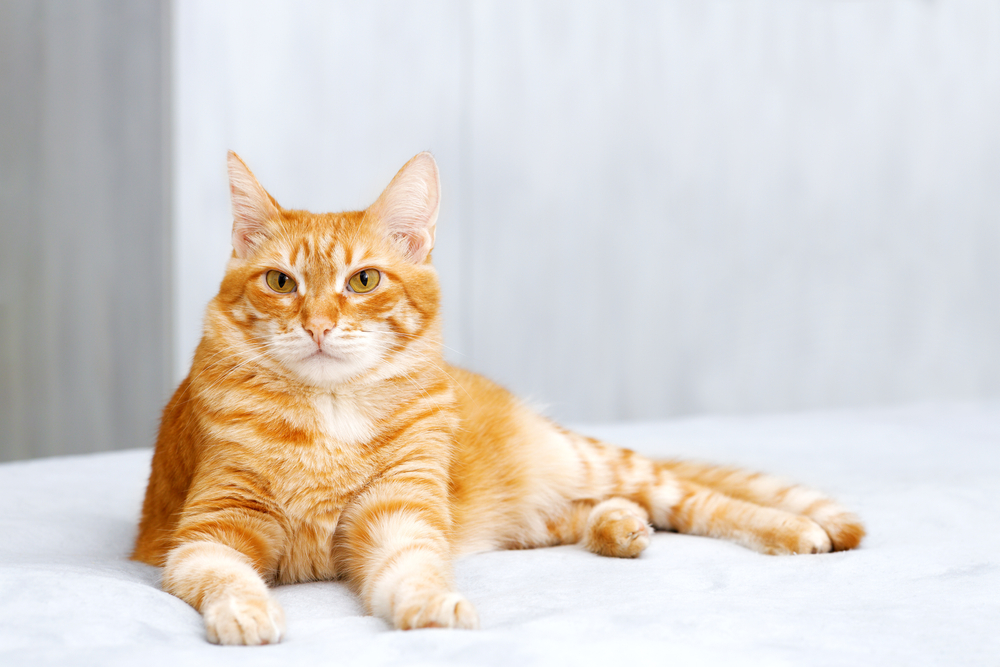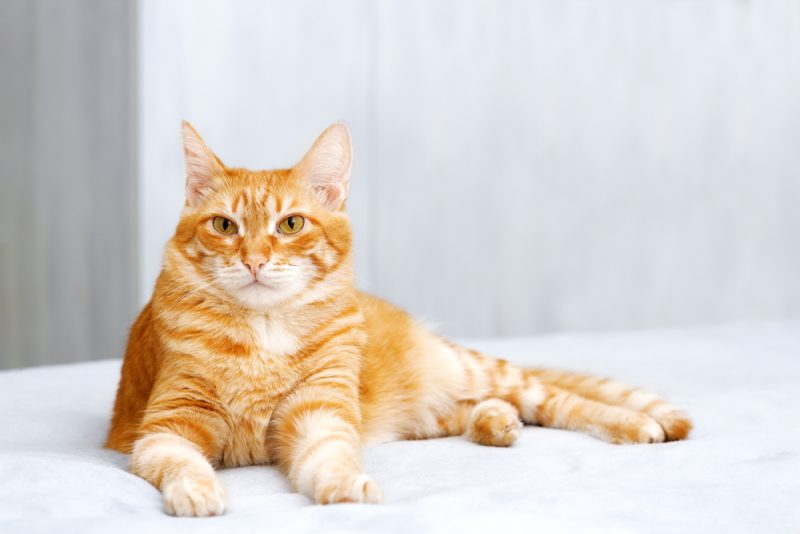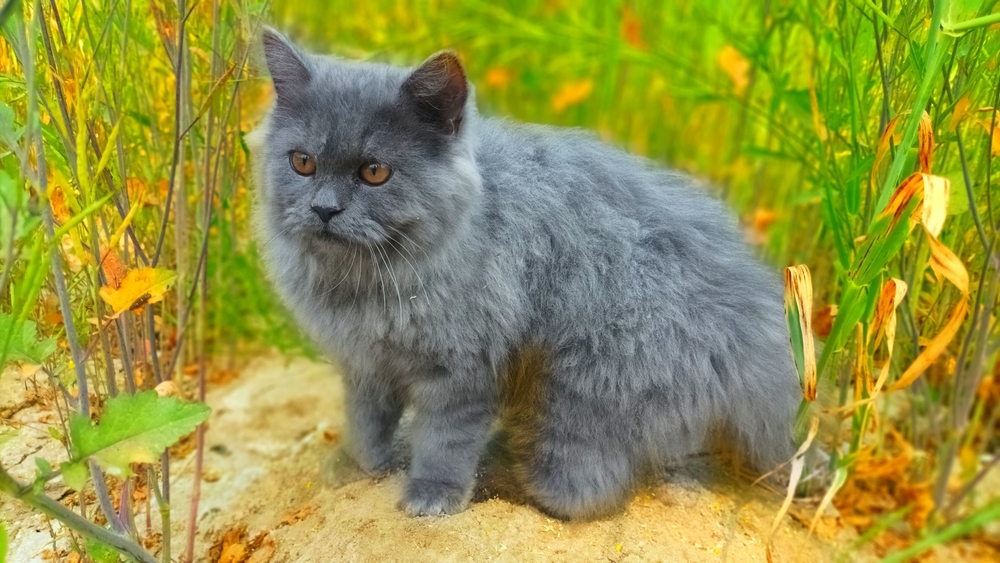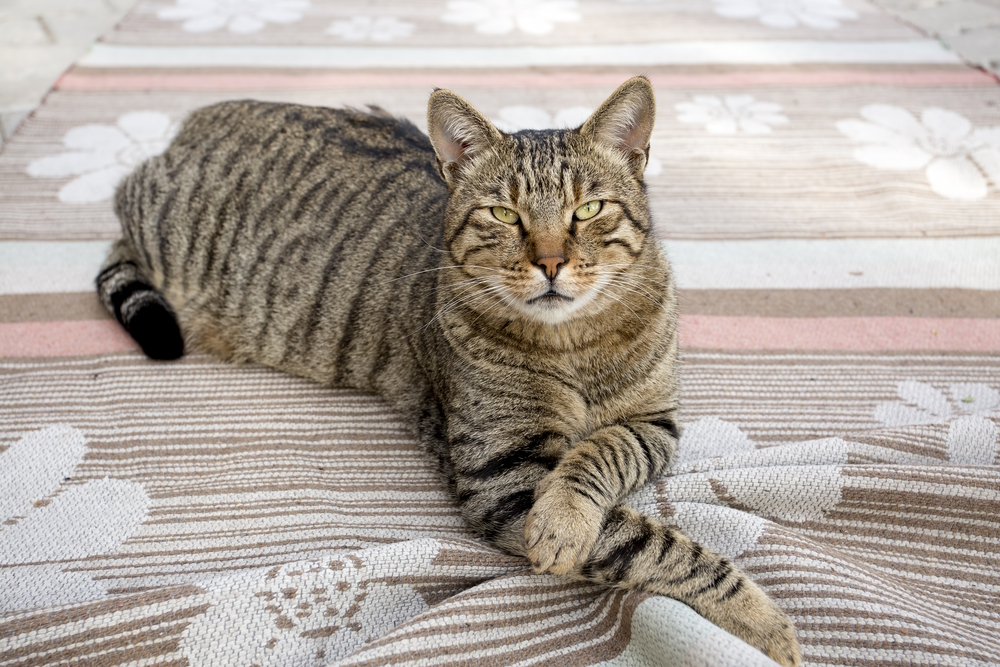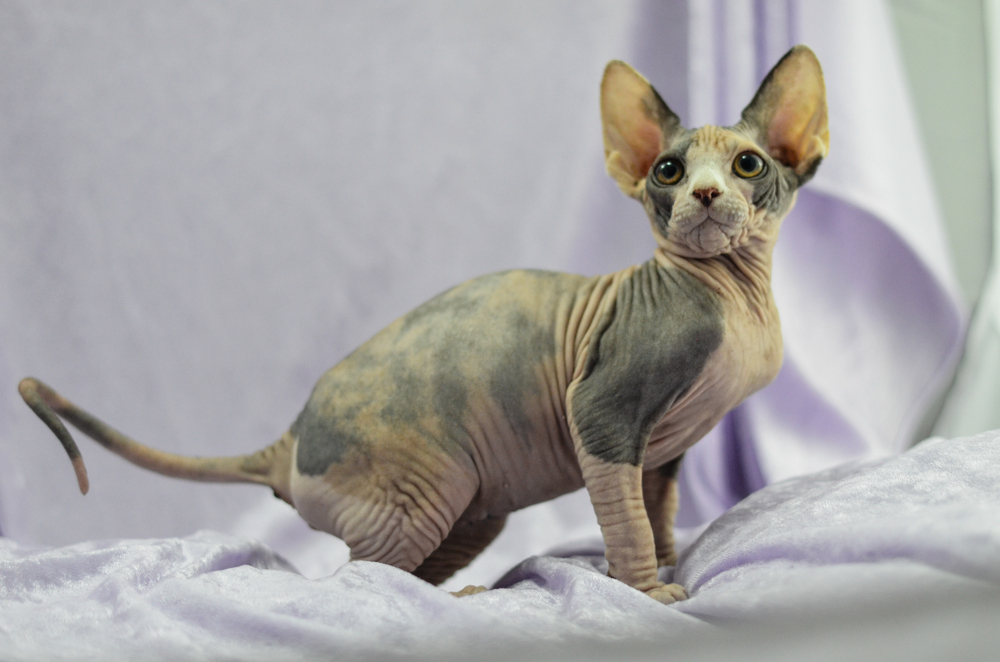The chances are pretty high that you’ve seen an orange tabby cat, and you’ve probably met a few, too. If you’re familiar with them, you know that they’re some of the sweetest, lackadaisical felines that love long naps and snuggles. If you are searching for an orange tabby, or are just curious about this fantastic feline, take a look at these 15 terrific facts.
The Top 15 Orange Tabby Cat Facts
1. Most Orange Tabby Cats Are Males
While not all orange cats are male, they are far and away the majority. A whopping 80% of all orange tabby cats are males. Why? It all comes down to genetics. To produce this beautiful coat color, the females need two orange genes, as they are linked to the X chromosome—one from each parent—whereas males need only one.1 So, it’s much easier to wind up with a boy.
It’s not as rare as, say, a male calico. Calicos are nearly always females. Only one in every 3,000 calico cats are males, which is roughly 0.1%—it’s a unique occurrence in nature.2
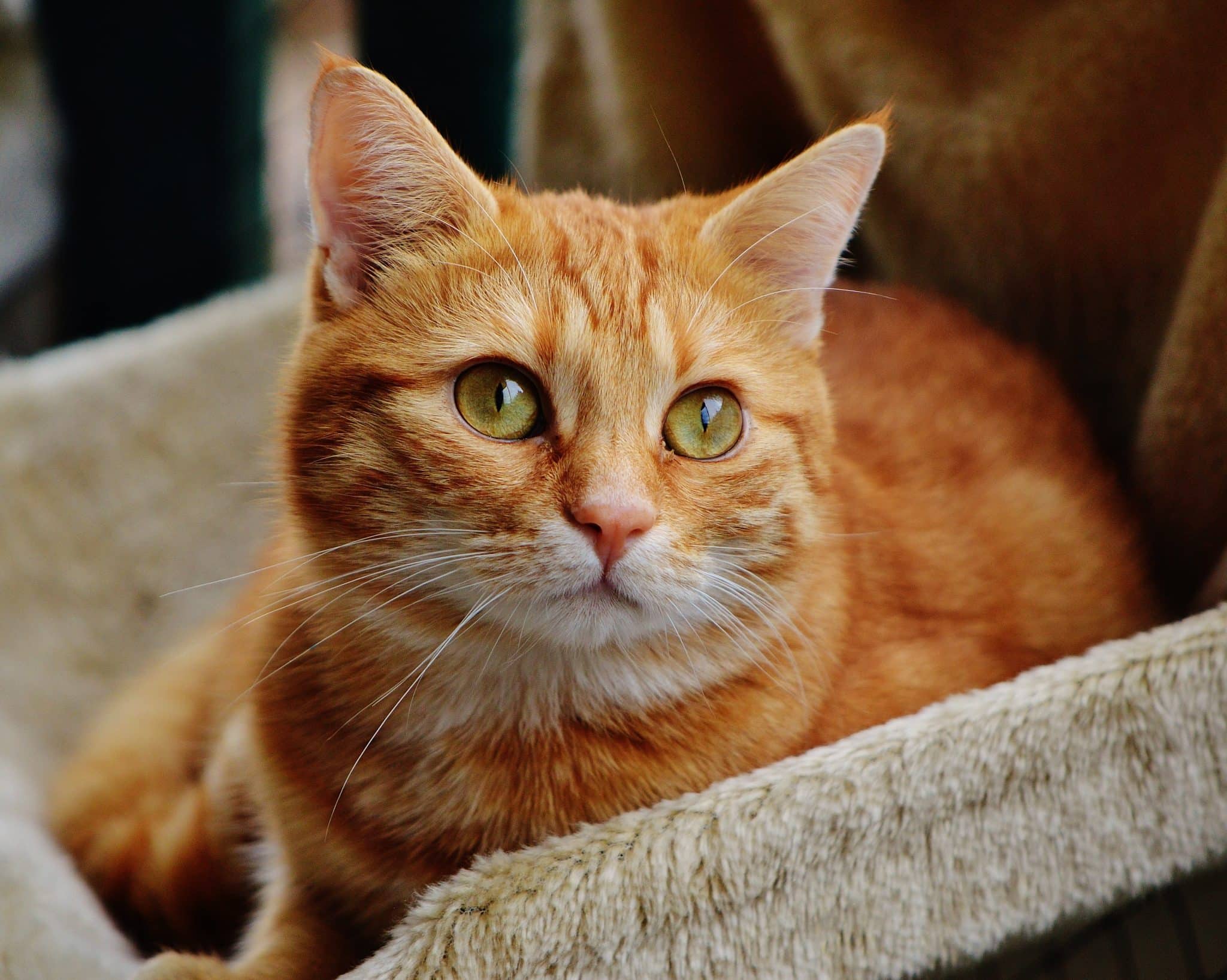
2. Orange Tabby Cats Are Very Affectionate
While every cat has a special personality, chances are that an orange cat will be super-loving. They tend to be very docile and social. You may be more likely to pick an orange tabby kitten out of a litter because they’ll be coming up to see you, meowing, purring, and rubbing all over your legs.
3. Tabby Cats Have Many Patterns
Tabby cats have five possible patterns.
- Classic: The classic coat that looks like swirls of different orange shades.
- Mackerel: Mackerel most resembles tiger stripes, with rings around the tails and legs and solid or broken stripes around the rest of the body.
- Spotted: Sometimes, instead of the mackerel pattern, you have spots rather than stripes.
- Patched: Patches of dark or gray-brown and red or orange with the tabby pattern, referred to as tortoiseshell tabbies.
- Ticked: The ticked pattern is where the coat might appear a solid shade, but the classic stripes may appear on the face and sometimes the legs; however, if looking up closely, each hair had a band of light and dark fur.
4. Pheomelanin Pigment Is Responsible for Their Color
Similar to humans with red hair, orange cats have a pigment called pheomelanin in their hair shafts due to an unknown genetic mechanism that causes suppression of the black-brownish standard eumelanin pigment in favor of pheomelanin. This pigment is responsible for all ginger cats and their human counterparts. Some redheads are known for their bold, fiery personalities. Does the same trait extend to our feline friends? With orange tabbies, like with other cats, it’s purely individual.
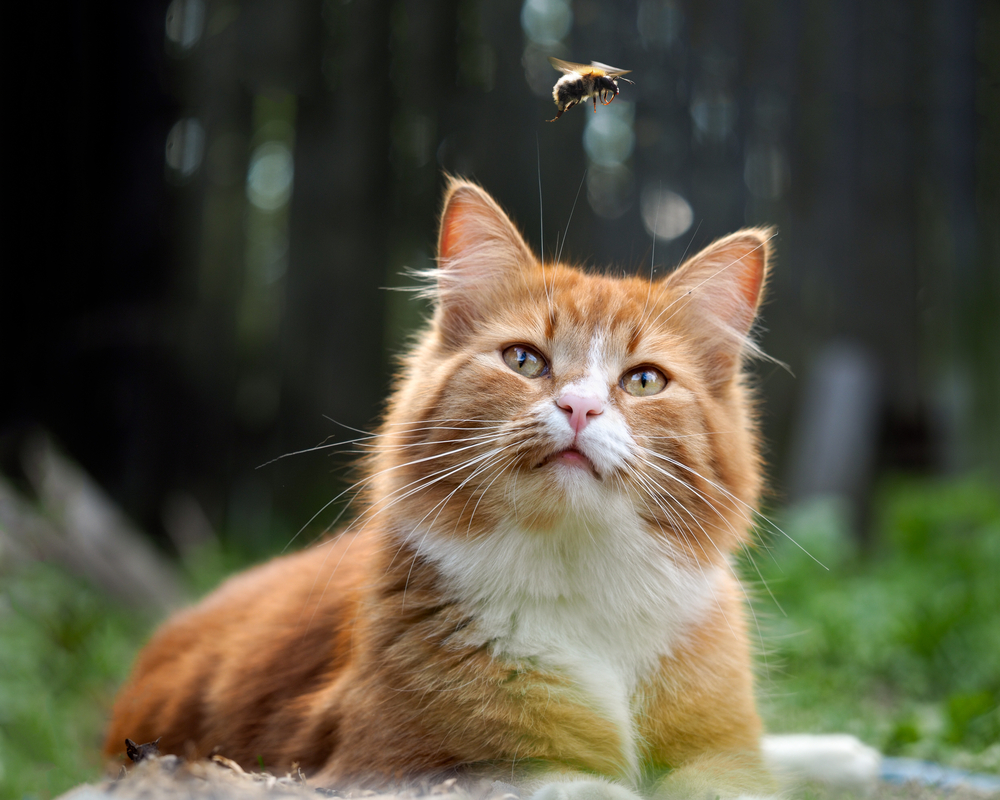
5. Ginger Cats Tend to Be Relaxed
Ginger cats have quite the reputation for being relaxed. Some of them are even borderline lazy, but some can actually be quite energetic and curious, depending on their age and lifestyle. It’s very individual. They can make ideal companions, but of course, don’t forget that each ginger cat has their own personality, which will depend on early socialization and life experiences.
6. Orange Tabby Cats LOVE Food
The orange tabby may be the cat that wakes you up in the morning if you forget to feed them in time. They love their food, but like with any other cat, beware of obesity. Cats can easily become overweight if they are eating an excess of calories and not exercising sufficiently, depending on their lifestyle. You have to put the brakes on any excessive snacking.
7. Orange Tabbies Have Lots of Nicknames
Because of their coloring, they’ve taken on quite a few nicknames over the years. They are commonly referred to as ginger cats or yellow cats, occasionally even caramel, butterscotch, or marmalade cats. It’s pretty fitting that orange cats are known by so many food names since they’re so crazy about tasty treats and meals.
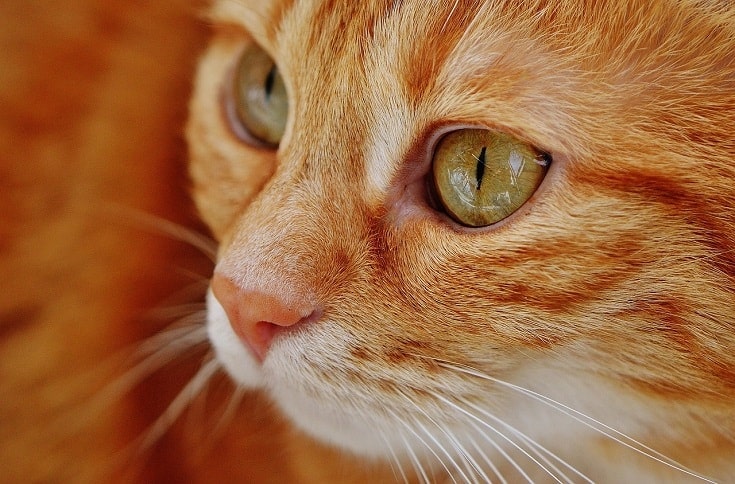
8. Orange Tabby Cats Are Usually Large
On top of being prone to weight gain, they’re also usually a bit bigger than other cats. While the difference isn’t extreme, they are slightly taller (and sometimes wider). Perhaps most of that is because they are males who are larger than females in any pattern.
9. Orange Tabbies Have Many Shades
An interesting characteristic of the orange tabby’s coat is that it can exhibit a variety of hues, from a light cream color to rich red mahogany. On top of the unique patterns that they can have, these different tones and hues accentuate their features.
10. The Orange Tabby Cat Isn’t a Particular Breed
The orange tabby is not a breed in itself. Many breeds can have the orange tabby look, so the color isn’t dependent on a specific type of cat. The most common breeds that can have this pattern and color variation are Persians, Turkish Angoras, American Bobtails, Maine Coons, Abyssinians, and Egyptian Mau cats.
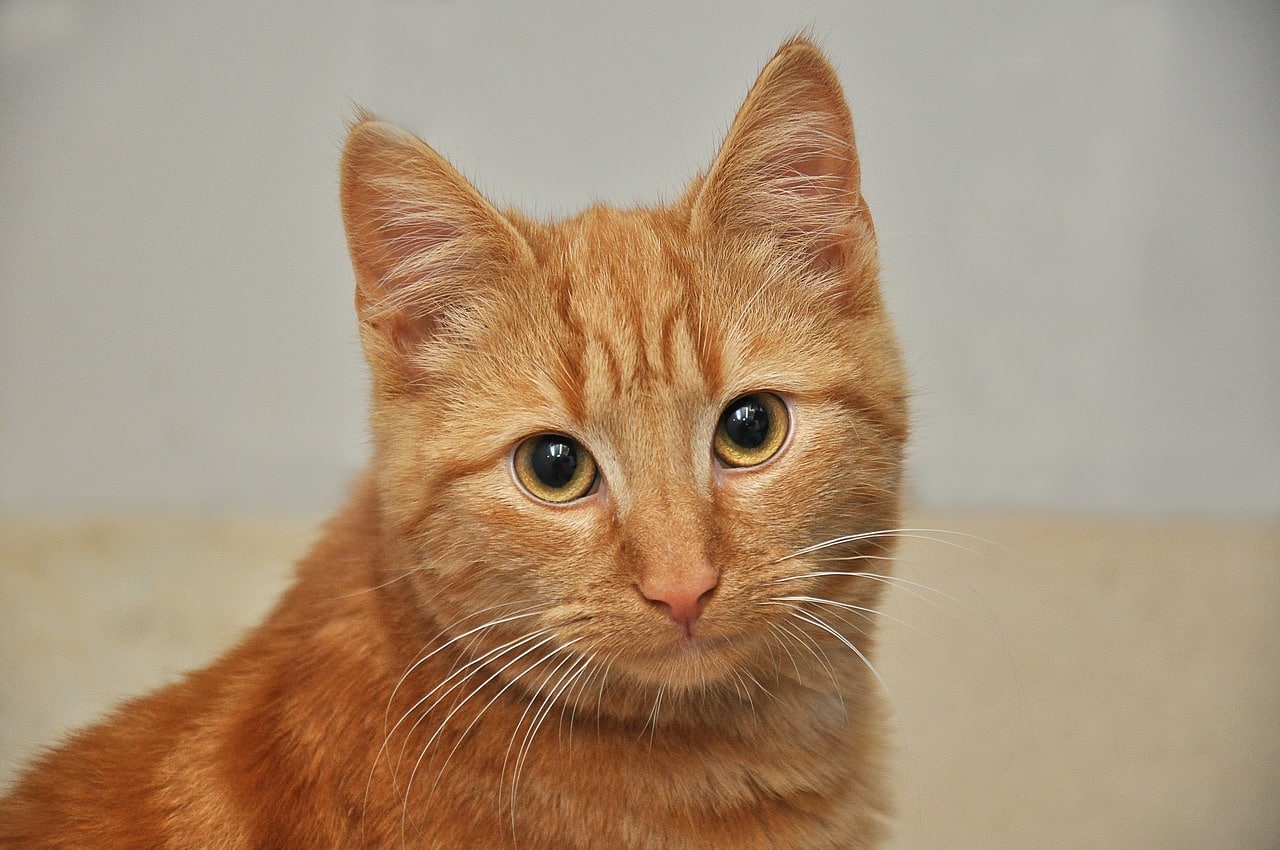
11. All Tabbies Have a Distinct Forehead Marking
Many legends come from the infamous “M” shape on the orange tabby’s head. Some say that Mother Mary kissed the cat to bless them for rocking baby Jesus to sleep. Another legend says that an orange tabby killed a snake for Muhammad, who then put his mark on the cat, but no one really knows for sure.
12. Tabby Patterns Serve as Camouflage
Much like tigers and other majestic large cats, their orange hues and patterns serve as camouflage to help them blend in while they’re hunting. This concept is the same for our domesticated friends if you consider how a Bengal tiger blends in with tall grass.
13. Orange Tabbies Can Develop Black Freckles
You might see an orange tabby with little black specks on their nose, lips, and other parts of the skin. This particular color scheme is prone to these adorable freckles. When the epidermal melanocytes multiply, your cat may develop spots called lentigo. However, these should be checked out by your vet to make sure they are nothing concerning.
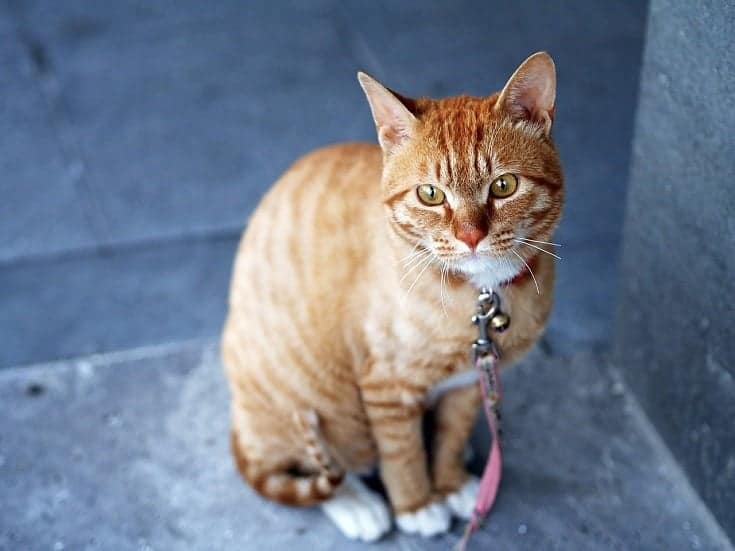
14. Some Orange Tabbies Are Famous
If you’ve watched several films over the years, you’ve probably seen several recognizable orange tabby cats.
- Oliver from Walt Disney’s Oliver and Company
- Crookshanks from Harry Potter
- Milo from Milo and Otis
- Toulouse and Thomas O’Malley from Walt Disney’s Aristocats
- Garfield
All these cats were famous, but what else do they have in common? They’re all boys!
15. Orange Tabbies Can Have a Variety of Eye Colors
Orange cats can have gold, green, copper, or, less commonly, blue eyes. Each color provides a beautiful contrast to their fur. While tones can vary slightly between gold and light amber, their eyes stay relatively the same basic shades.
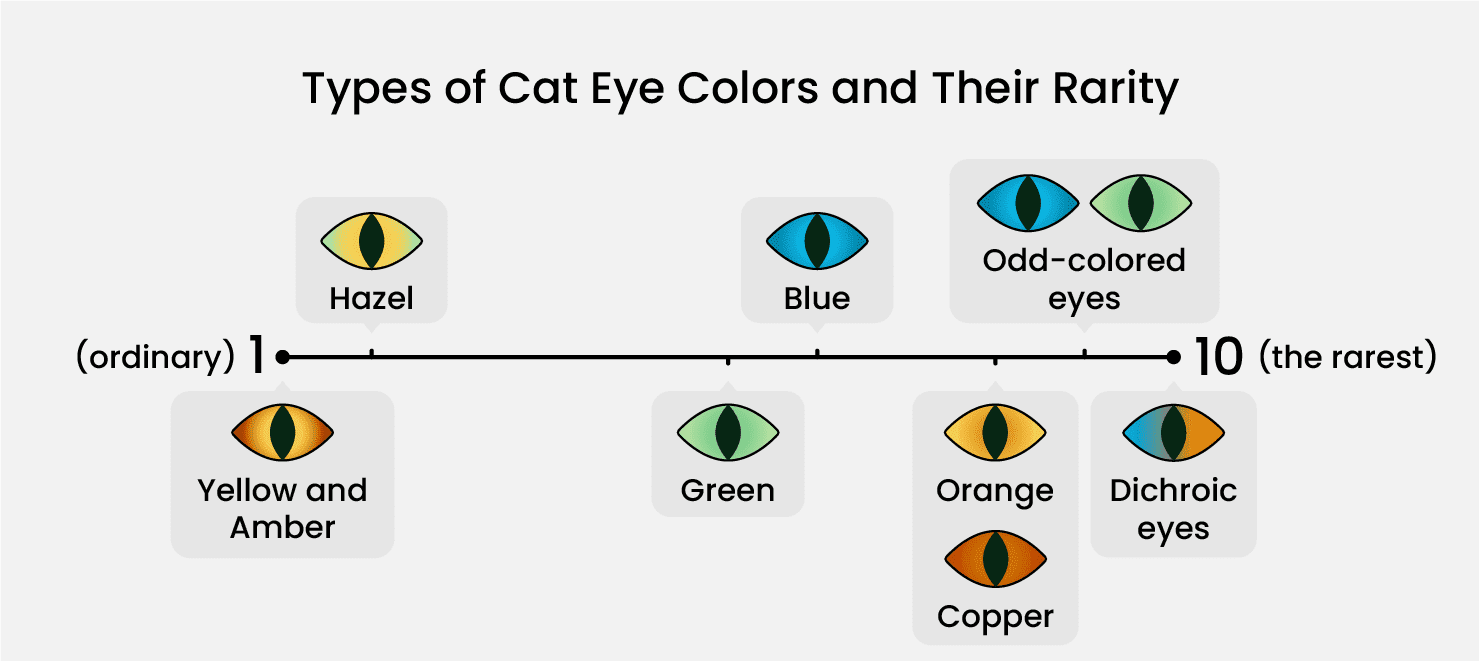
Final Thoughts
As you can see, orange tabbies have several appealing traits that make them so terrific. This male-dominated coat color includes several outstanding felines with gentle demeanors. Orange cats are fantastic companions—and chances are there are a few orange tabbies at your local shelter now!
Related reads:
- 100+ Orange Cat Names: Ideas for Friendly & Mellow Cats
- 10 Blue Cat Breeds: An Overview (With Pictures)
- Introducing the Catsters: Dr. Karyn & the Five Felines That Allow Her to Share Their Home
Featured Image Credit: Mark_KA, Shutterstock
Contents
- The Top 15 Orange Tabby Cat Facts
- 1. Most Orange Tabby Cats Are Males
- 2. Orange Tabby Cats Are Very Affectionate
- 3. Tabby Cats Have Many Patterns
- 4. Pheomelanin Pigment Is Responsible for Their Color
- 5. Ginger Cats Tend to Be Relaxed
- 6. Orange Tabby Cats LOVE Food
- 7. Orange Tabbies Have Lots of Nicknames
- 8. Orange Tabby Cats Are Usually Large
- 9. Orange Tabbies Have Many Shades
- 10. The Orange Tabby Cat Isn’t a Particular Breed
- 11. All Tabbies Have a Distinct Forehead Marking
- 12. Tabby Patterns Serve as Camouflage
- 13. Orange Tabbies Can Develop Black Freckles
- 14. Some Orange Tabbies Are Famous
- 15. Orange Tabbies Can Have a Variety of Eye Colors
- Final Thoughts

